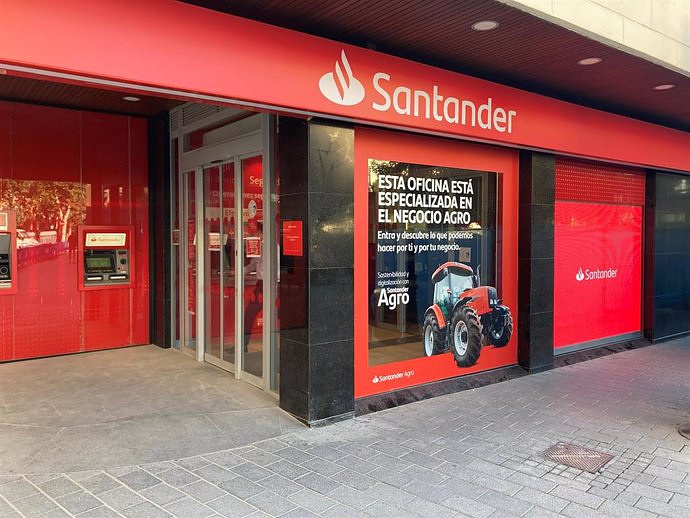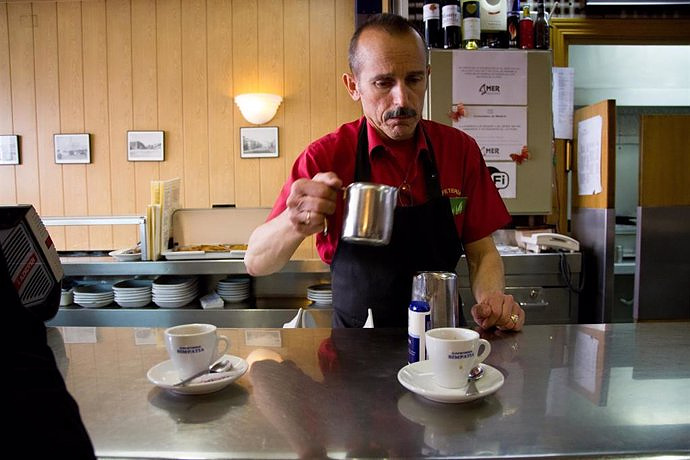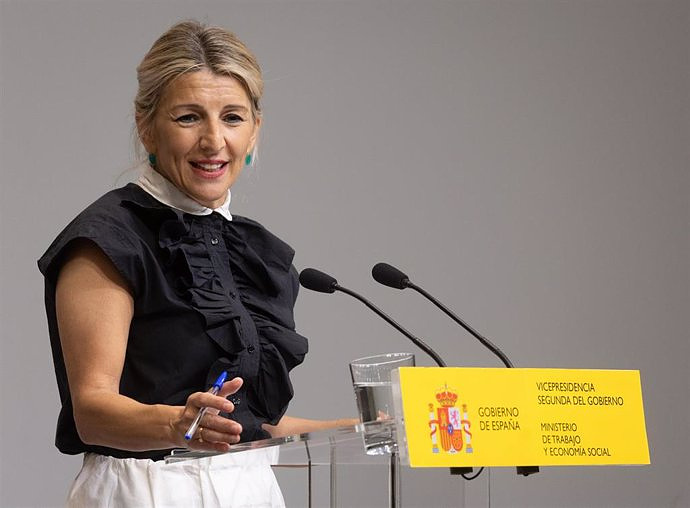MADRID, 19 Feb. (EUROPA PRESS) -
Podemos and IU continue to advance in the pacts to run together in the May elections one hundred days before the elections, having already closed coalitions in nine territories, to which several Andalusian cities have joined, with the prospect of continuing to expand this alliance and incorporate other forces .
For its part, the role of Más País in various autonomies is still unclear, given that in Murcia the possibility of running with both forces has not materialized, in the Canary Islands it advocates a unitary candidacy of all forces and in Andalusia they have suspended all the negotiations that were going on with Podemos and IU.
The premise of broad-front candidacies with which the forces of Unidas Podemos faced this political cycle will not prevent the fragmentation of the left beyond the PSOE in some regions. And it is that Más Madrid and Compromís (Valencia), Mes (Baleares) or La Chunta (Aragón) will also be their electoral rivals. A possibility that also occurs in the Canary Islands since the irruption of the Drago project of the purple former deputy Alberto Rodríguez.
The strong tension that Podemos and IU experienced for the creation of the 'For Andalusia' coalition in the last regional elections in this community has not spread to other regions, since both forces are advancing to increase joint candidacies for these elections, with respect to to 2019.
To date, Podemos and IU have already achieved unitary lists for the autonomous and local ones in Navarra, Madrid, Cantabria, Murcia, Extremadura, the Balearic Islands and the Canary Islands, which are added to the agreement in Catalonia for the municipal ones (under the umbrella of the common ones) and in Euskadi, both for the local and foral elections.
In addition, the idea is to extend the period to establish alliances until mid-March and see if they can be extended to more formations and groups, recognizing that the local casuistry has a complexity that requires more time to close the pacts, as IU recently explained.
The objective of Podemos and IU is to achieve the maximum possible convergence for 28M and, therefore, the idea is to also culminate a coalition in La Rioja, which was advanced months ago but has not yet materialized, and in the Valencian Community, at breaking off negotiations with Compromís and not seeing, as space sources commented, a commitment in favor of electoral unity.
Precisely in this region, Podemos and Alianza Verde, the environmental party of the confederal space, have already signed an agreement to join forces on 28-M, waiting for the contacts with IU to come to fruition. The formation led by the deputy Juantxo López de Uralde is also part of various electoral agreements with the Basque Country, Murcia and Madrid.
The Andalusian case is unique where the relations of Podemos and IU have been recomposed for the electoral appointment and there are already advanced joint candidacies in Seville, Córdoba and also in Almería, where the lists are already very advanced. However, in Malaga the scenario is one of rupture and the two forces opted to go separately.
Other confluence agreements of the two formations have also been reached at the municipal level, such as in Guadalajara and Cuenca, with the desire to also advance in León.
The alliance of Podemos and IU in Asturias and Aragón is presented as complicated, two territories in which they have never competed together. Meanwhile, in Castilla-La Mancha, a party table for a joint list is being explored, where both forces have shown their willingness to champion an eventual list of unity.
The causistry of the Andalusian case has also generated that Más País, which joined the 'Por Andalucía' coalition, has decided to distance itself from the pacts forged between Podemos and IU for the Andalusian municipal governments and shuffles not to present its own candidacies for these elections.
In Murcia, it is yet to be defined whether the Errejón brand in this community will finally have a confluence with Podemos and IU, since the purples want IU to be the one to fit them. In this wait, Más Región has sealed an electoral alliance with Verdes Equo under the name of Green Coalition.
Meanwhile, in Castilla La Mancha it is part of that party table and in the Canary Islands recently the party linked to Errejón stated that it was not aligned with any block and insisted on reaching a unitary agreement. And it is that on the one hand Podemos and IU have extended their electoral agreement (together with 'Sí se puede') while Alberto Rodríguez's brand has drawn up alliances with Verdes Equo and Ahora Canarias. Nor does Más País appear in other agreements forged by the forces that make up Unidas Podemos, as is the case with Euskadi.
In this way, the appointment to the regional ones will leave unity candidacies such as in Navarra, with a coalition of Podemos, IU, Batzarre and Independientes, under the Unidas Podemos brand and also in other regions where Podemos and IU are in the majority, such as Extremadura.
However, and as happened in other elections, there will not be a common umbrella and there are a plurality of brands, some to be defined, although the will of the confederal space is to maintain those that have worked or preponderate the name of the formations on the ballot, so that their electorate is recognized.
Sumar, the platform promoted by Second Vice President Yolanda Díaz with the aim of regrouping the left, will not arrive for this appointment, given that the project is of a national nature, although it recently revealed that it is holding meetings with parties in this regard.

 Exploring Cardano: Inner Workings and Advantages of this Cryptocurrency
Exploring Cardano: Inner Workings and Advantages of this Cryptocurrency Seville.- Economy.- Innova.- STSA inaugurates its new painting and sealing hangar in San Pablo, for 18 million
Seville.- Economy.- Innova.- STSA inaugurates its new painting and sealing hangar in San Pablo, for 18 million Innova.- More than 300 volunteers join the Andalucía Compromiso Digital network in one month to facilitate access to ICT
Innova.- More than 300 volunteers join the Andalucía Compromiso Digital network in one month to facilitate access to ICT Innova.-AMP.- Ayesa acquires 51% of Sadiel, which will create new technological engineering products and expand markets
Innova.-AMP.- Ayesa acquires 51% of Sadiel, which will create new technological engineering products and expand markets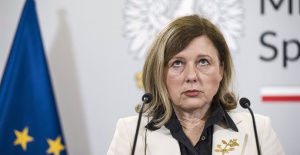 Brussels sees no more risk for the rule of law in Poland and is preparing to close the sanctioning file
Brussels sees no more risk for the rule of law in Poland and is preparing to close the sanctioning file The PP calls to mobilize on May 26 against the amnesty, the "hoaxes" and the "suspicion of corruption" of the Government
The PP calls to mobilize on May 26 against the amnesty, the "hoaxes" and the "suspicion of corruption" of the Government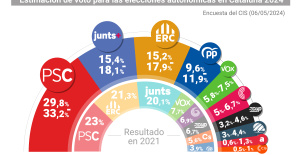 The PSC would obtain up to 33.2% of votes, Junts 18.1% and ERC 17.9% in the Catalan elections
The PSC would obtain up to 33.2% of votes, Junts 18.1% and ERC 17.9% in the Catalan elections Ábalos doubts that there is a "plot" in the Koldo case and wonders "where commissions are not charged"
Ábalos doubts that there is a "plot" in the Koldo case and wonders "where commissions are not charged" How Blockchain in being used to shape the future
How Blockchain in being used to shape the future Not just BTC and ETH: Here Are Some More Interesting Coins Worth Focusing on
Not just BTC and ETH: Here Are Some More Interesting Coins Worth Focusing on UMH researchers are working on a high-quality apricot crop that requires less irrigation water
UMH researchers are working on a high-quality apricot crop that requires less irrigation water The UPV develops an application to improve the quality of life of patients with glioblastoma
The UPV develops an application to improve the quality of life of patients with glioblastoma A sensor system obtains the fingerprint of essential oils and detects if they have been adulterated
A sensor system obtains the fingerprint of essential oils and detects if they have been adulterated Faraday UPV presents the 'Origin' rocket to exceed 10 km of flight: "It is the beginning of the journey to space"
Faraday UPV presents the 'Origin' rocket to exceed 10 km of flight: "It is the beginning of the journey to space" A million people demonstrate in France against Macron's pension reform
A million people demonstrate in France against Macron's pension reform Russia launches several missiles against "critical infrastructure" in the city of Zaporizhia
Russia launches several missiles against "critical infrastructure" in the city of Zaporizhia A "procession" remembers the dead of the Calabria shipwreck as bodies continue to wash up on the shore
A "procession" remembers the dead of the Calabria shipwreck as bodies continue to wash up on the shore Prison sentences handed down for three prominent Hong Kong pro-democracy activists
Prison sentences handed down for three prominent Hong Kong pro-democracy activists ETH continues to leave trading platforms, Ethereum balance on exchanges lowest in 3 years
ETH continues to leave trading platforms, Ethereum balance on exchanges lowest in 3 years Investors invest $450 million in Consensys, Ethereum incubator now valued at $7 billion
Investors invest $450 million in Consensys, Ethereum incubator now valued at $7 billion Alchemy Integrates Ethereum L2 Product Starknet to Enhance Web3 Scalability at a Price 100x Lower Than L1 Fees
Alchemy Integrates Ethereum L2 Product Starknet to Enhance Web3 Scalability at a Price 100x Lower Than L1 Fees Mining Report: Bitcoin's Electricity Consumption Declines by 25% in Q1 2022
Mining Report: Bitcoin's Electricity Consumption Declines by 25% in Q1 2022 Oil-to-Bitcoin Mining Firm Crusoe Energy Systems Raised $505 Million
Oil-to-Bitcoin Mining Firm Crusoe Energy Systems Raised $505 Million Microbt reveals the latest Bitcoin mining rigs -- Machines produce up to 126 TH/s with custom 5nm chip design
Microbt reveals the latest Bitcoin mining rigs -- Machines produce up to 126 TH/s with custom 5nm chip design Bitcoin's Mining Difficulty Hits a Lifetime High, With More Than 90% of BTC Supply Issued
Bitcoin's Mining Difficulty Hits a Lifetime High, With More Than 90% of BTC Supply Issued The Biggest Movers are Near, EOS, and RUNE during Friday's Selloff
The Biggest Movers are Near, EOS, and RUNE during Friday's Selloff Global Markets Spooked by a Hawkish Fed and Covid, Stocks and Crypto Gain After Musk Buys Twitter
Global Markets Spooked by a Hawkish Fed and Covid, Stocks and Crypto Gain After Musk Buys Twitter Bitso to offset carbon emissions from the Trading Platform's ERC20, ETH, and BTC Transactions
Bitso to offset carbon emissions from the Trading Platform's ERC20, ETH, and BTC Transactions Draftkings Announces 2022 College Hoops NFT Selection for March Madness
Draftkings Announces 2022 College Hoops NFT Selection for March Madness


